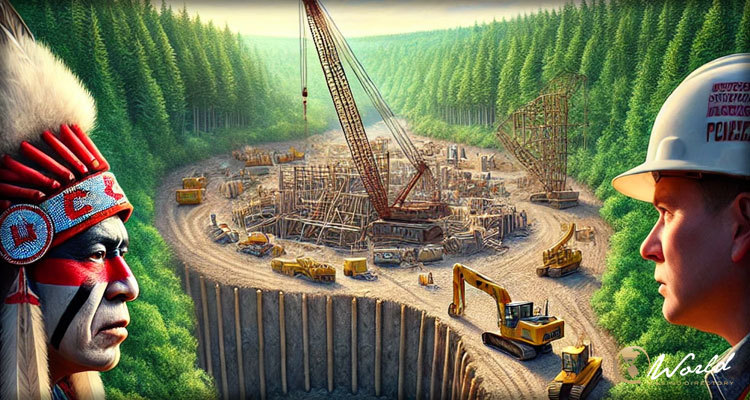In Northern California, the serene landscapes that stretch from wine country to redwood forests are now the backdrop for a growing conflict between the Yocha Dehe Wintun Nation and the Scotts Valley Band of Pomo Indians. These tribes, rooted in distinct languages and shared histories of dance and resilience, are now at odds over a proposed casino development—a dispute that has drawn attention to the broader implications for tribal sovereignty and the U.S. government’s reparative policies.
The heart of the controversy:
At the heart of the controversy is a 128-acre parcel in Solano County that the Scotts Valley Band sought to construct a $700-million casino resort. This plan, however, has been met with opposition from the Yocha Dehe Wintun Nation, who argue that the land falls within the bounds of their ancestral territory. This dispute was intensified by a 2019 decision from the Trump administration, which was later overturned by a federal judge, citing overreach and faulty reasoning.
The proposed casino promises significant economic benefits, including the creation of approximately 3,640 jobs in a region with high poverty rates. However, the development also raises concerns about cultural preservation, particularly from the Yocha Dehe leaders, who view the project as a desecration of sacred land historically rich with their ancestors’ presence. Yocha Dehe Tribal Chairman Anthony Roberts expressed, “It’s a bit disrespectful to have a tribe come from 90-plus miles away to develop something in our homeland.”
The dispute has severed long-standing communications between the two tribes, with the Yocha Dehe once offering financial support for an alternative site to foster solidarity and respect among native communities. This standoff reflects broader tensions as landless tribes and those with reservations push for greater recognition and management of stolen territories—a movement gaining traction across California.
Judicial and political layers:
The legal battle over the casino has drawn in various stakeholders, including local government officials and members of California’s congressional delegation, who have voiced opposition to the Scotts Valley Band’s plans. The judiciary’s role has become pivotal, with recent rulings challenging past governmental decisions and shaping the future of tribal land rights in America. As the Los Angeles Times reports, Scotts Valley Tribal Vice Chairman Jesse Gonzalez stated, “For generations, our people have faced significant hardships, including the loss of our ancestral lands, making us one of the few landless Indian tribes in the United States.”
Historical context and indigenous advocacy:
The history of the Patwin and Pomo tribes in Northern California is marked by periods of displacement and violence, leading to a complex tapestry of cultural survival and advocacy. The current casino dispute is situated within this larger narrative of Indigenous rights and land reclamation efforts, highlighting the ongoing struggle for justice and recognition. The Yocha Dehe tribe, with its existing ventures in the Capay Valley, represents a successful model of economic self-sufficiency and cultural revitalization. Meanwhile, the Scotts Valley Band’s pursuit of the casino project is seen as a critical step toward reclaiming a physical and economic presence in their ancestral lands.



